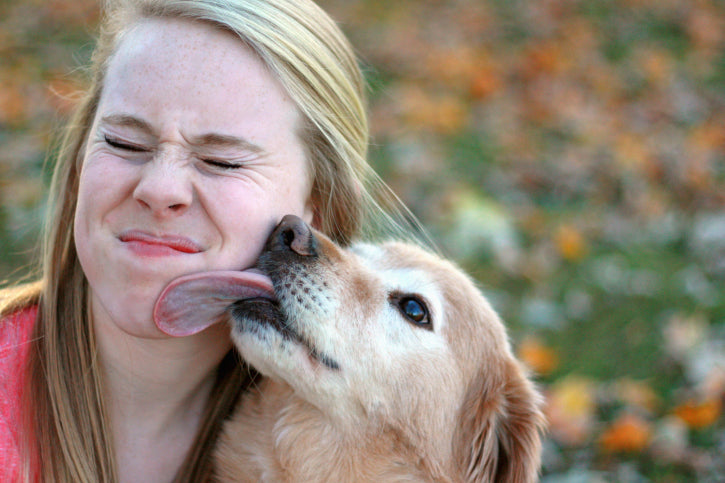Puppy breath is said to be cute, but as dogs get older, their breath can turn into something you’re less than excited about cuddling up with.
If your dog wants to give you a full-face smooch, do you recoil from the smell? And cat owners know the feeling, too. Like when your cat yawns up close and personal by your face and the smell of her breath makes you want to faint. Phew!
So how do we stop our furry friends from having dragon breath? First, we need to figure out root causes.
Why Does My Pet Have Bad Breath?
You feed your pet well, not with table scraps, but with sound nutritional formulas. You don’t think Fido has gotten into any road kill for lunch. So where did this smell come from?
Bad breath, aka halitosis, doesn’t just arise from what your pet recently ate. It’s the result of several factors, including bacterial build up in the mouth and also your pet’s entire digestive system.
Most pet owners understand that a smelly mouth on a pet, like in a person, usually comes from the health of the teeth and gums. You may not realize, though, that breath odors can signal an underlying issue you didn’t suspect, such as gastrointestinal distress.
For example, if your pet’s breath smells distinctively like urine or fruit, your pet may have liver problems or diabetes, respectively. You’ll want to get a medical option if you suspect something deeper than oral hygiene is causing bad breath; your vet will need to do lab work to get to the root of the problem.
Everyday Bad Doggy Breath
People are lucky. We’ve been trained since a wee age to brush our teeth in the morning and the evening. Conscientious folk also use floss and/or mouthwash.
So brushing your dog or cat’s teeth will make that morning-mouth smell go away too, right?
Not quite. Part of your own regular dental care is a visit to your dentist every 6 or twelve months for cleaning. The same should be true for your pet.
There are plenty of effective products specifically for dogs and cats (and even other pets) such as pet toothbrushes, flavored dental toys, and minty products to clean your pet’s teeth and gums. Please do NOT use human products on your pet!
In addition to regular maintenance, some pets reach a point where professional cleaning is necessary. Pets also lose teeth so routine check-ups can keep your pet’s mouth in the pink of health.
You may want to disinfect icky balls and soft toys in the washing machine and chew-toys in the dishwasher to destroy the bacteria that inevitably gather and multiply on them. However, you should not try to disinfect edible treats and bones that weren’t finished in one sitting.
If your family pet seems to suffer from gastrointestinal issues, you may wish to look for pet treats that contain yogurt or probiotic supplements. These supplements may be available through your vet, if warranted, and they are well tolerated by most pets.
While some yogurts in the grocery store have good probiotics, human yogurt is not wholly recommended for pets because the artificial sweetener Xylitol can be toxic, and pets may also be lactose intolerant.
Also, do make sure that your pet’s chow agrees with his gut. Try a single-protein product with few or no preservatives and limited grains to avoid food-based sensitivities. Dogs sometimes are known to develop allergies to one type of dog food over time, so just because a food has been the staple of your family hound for most of its life does not mean you should stick with it forever.
With the right attention to diet, prevention and check-ups, you and your dog or cat will both have something to smile about.
 Craig Davis
Craig Davis
Craig Davis, CEO and Chief Happiness Officer at www.vet-organics.com
Craig is the founder of Vet Organics, where he and his team share additional pet-related articles on the company’s blog. Vet Organics is an eCommerce provider of EcoEars and an array of premium natural products dedicated to the health and wellness of pets.







